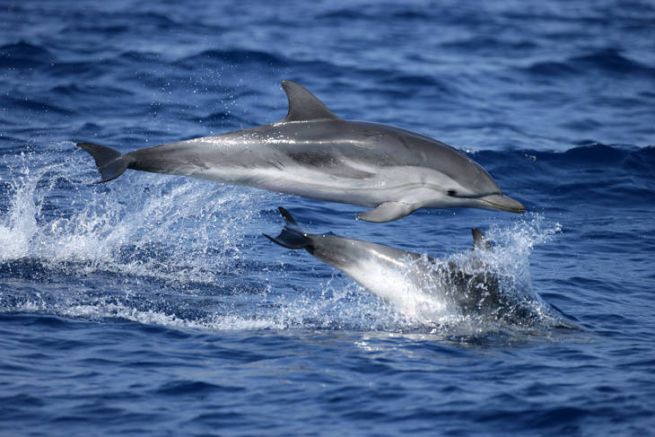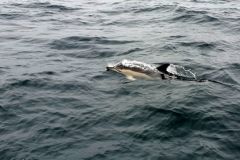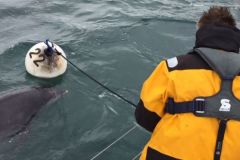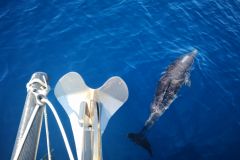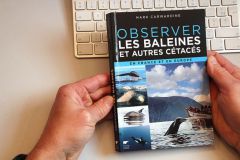In France, on the Mediterranean, with the beginning of the summer season, tourist operators have launched swimming trips with wild cetaceans. This activity is a real success and is met with disapproval by associations, including France Nature Environnement, which is sounding the alarm to make tourists aware of the dangers of this practice.
Swimming with wild dolphins
Commercial swimming consists of taking tourists out to sea, as close as possible to wild cetaceans (dolphins, whales and sperm whales) to enjoy a privileged moment with these animals. The mammals have been previously tracked by low-level spotting planes, which cover a large area up to at least 20 miles offshore.
This activity takes place mainly from May to September in the Mediterranean, due to ideal weather and current conditions and a strong presence of cetaceans and does not require any licence.
Unfortunately, as the association explains, this activity, unlike the " whale-watching "that it, if practised in compliance with strict rules of approach, can be a means of environmental education and raising awareness on the protection of cetaceans, disturbs marine animals. This disturbance is already adding to the many pressures that cetaceans are undergoing (noise, pollution, scarcity of food resources...).
"Despite our many hands outstretched over the past 12 years and our proposals to accompany them towards a gentler activity, operators offering swimming activities have never agreed to switch to traditional whale-watching that respects the code of good conduct. On the contrary, the activity has rather intensified, to the point that it now heavily constrains certain respectful operators who operate in the same areas, so stressed and scattered are the animals. We have done all we can do to raise awareness, and now it is up to the State to take over says Pascal Mayol, Honorary President of Souffleurs d'Ecume and an expert associated with the Foundation for Nature and Mankind.

A dangerous activity for both animals and humans
The presence of humans leads to behavioural changes in wild animals, particularly marine mammals, whose environment is very different from ours. Being close to humans can lead to various reactions in cetaceans, as France Nature Environnement explains: the interruption of the animal's feeding and reproduction activity or the break-up of the group and the separation of newborns from their mothers.
But immersion with these animals can also be dangerous for humans, who in most cases are completely unaware of the environment and marine mammals. Cetaceans are wild animals, little or not at all accustomed to meeting humans, and whose behaviour can be misinterpreted by tourists.
Alexandre Gannier, president of the Cetacean Research Group and a recognized scientific expert on the ecology of these animals, identified the problem as early as 2010: " To succeed in getting their customers in the water near dolphins, operators use tracking techniques that amount to harassment. They risk injuring or maiming the dolphins with the propellers of their powerful boats. Attempts at forced approaches and launches can last for hours, causing intense and long-lasting stress to cetaceans. Repeated for months at a time, these operations diminish the survival capacity of the cetacean groups that undergo them."

Weak sanctions and too little enforcement
From a legal standpoint, a 2011 order prohibits intentional disturbance, including the pursuit or harassment of animals in the natural environment. However, the penalties are not very dissuasive and, in practice, no operator has ever been convicted.
For Michel Dubromel, President of France Nature Environnement : " The marine environment should not be seen as a playground where anything goes. We therefore call for a ban on commercial swimming with cetaceans in French territorial waters in order to guarantee the well-being of marine mammals."

A petition to protect cetaceans
France Nature Environnement and the Groupe de Recherche sur les Cétacés launch a petition to demand a ban on the practice of commercial swimming with cetaceans in French territorial waters. A petition addressed directly to the President of the Republic, Emmanuel Macron, and already signed by 5091 participants.

